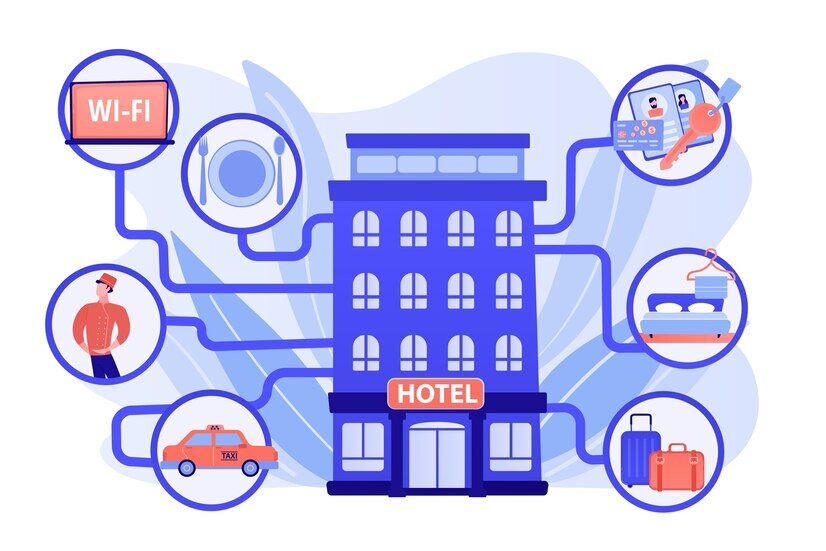In the modern era of online booking, the hospitality industry has seen a significant shift towards technology adoption to automate operations and improve efficiency. One such technology that has gained immense popularity among hoteliers is a hotel channel manager system. It is software that simplifies the distribution of hotel room inventory and rates across multiple online channels, such as OTAs (Online Travel Agencies) and the hotel’s website. A hotel channel manager system ensures that the hotel’s room availability and rates are accurately and consistently updated across all channels in real-time, thereby increasing the hotel’s online visibility and revenue. In this article, we will discuss tips for choosing the best hotel channel manager system for your property.
- Integration Capabilities: The first and foremost consideration while choosing a hotel channel manager system is its integration capabilities. The system should integrate seamlessly with your hotel’s PMS (Property Management System) and other third-party systems, such as revenue management and online booking engines. The integration ensures that data is transferred smoothly across systems without any manual intervention, thereby eliminating errors and saving time.
- Number of Channels: Another important factor to consider while selecting a hotel channel manager system is the number of channels it supports. The system should support all major OTAs such as Booking.com, Expedia, and Agoda, among others. The more channels the system support, the better the hotel’s online visibility and the higher the chances of booking. Additionally, the system should also allow integration with metasearch engines such as Google Hotel Ads and TripAdvisor, which have become crucial sources of hotel bookings.
- Real-time Updates: The hotel channel manager software should provide real-time updates to all connected channels. The system should update inventory and rates immediately upon any changes made in the PMS or channel manager system. Real-time updates ensure that the hotel’s online presence is accurate and up-to-date, reducing the risk of overbooking and rate parity issues.
- User-Friendly Interface: A hotel channel manager system should have a user-friendly interface that is easy to navigate and operate. The system should be intuitive and not require any technical knowledge or training. A user-friendly interface ensures that hotel staff can manage the system efficiently and effectively, saving time and effort.
- Customizable Features: The hotel channel manager system should offer customizable features that allow the hotel to set its own pricing rules and restrictions. The system should allow the hotel to set minimum and maximum rates, room availability, and stop-sell dates. Customizable features give hotels greater control over their online distribution and pricing strategies, enabling them to optimize revenue.
- Pricing Model: The pricing model is an essential consideration when selecting a hotel channel manager system. Some systems charge a flat fee, while others charge based on the number of rooms or channels managed. The pricing model should be transparent and cost-effective, with no hidden charges or long-term commitments. The system should provide a clear ROI (Return on Investment) and add value to the hotel’s online distribution strategy.
- Customer Support: A hotel channel manager system should offer reliable and responsive customer support. The system should provide 24/7 support to address any issues or concerns promptly. The support team should be knowledgeable and experienced, able to provide quick solutions to any problems that arise. Customer support is crucial in ensuring the smooth functioning of the system and maximizing the hotel’s online revenue.
- Mobile Accessibility: A hotel channel manager system that is accessible via a mobile app or mobile web interface is beneficial for hoteliers who are always on the go. Mobile accessibility allows hotel staff to manage their online distribution and pricing strategy from anywhere, at any time, ensuring that their online presence is always up-to-date and accurate.
- Data Analytics and Reporting: The hotel channel manager system should offer comprehensive data analytics and reporting tools that provide insights into the hotel’s online performance across channels. The system should provide data on occupancy rates, revenue per available room (RevPAR), average daily rate (ADR), and other key performance indicators (KPIs). Data analytics and reporting tools help hoteliers make data-driven decisions that can improve their online distribution and pricing strategies.
- Reputation Management: A hotel channel manager system that integrates with reputation management platforms such as TripAdvisor and Google My Business can help hoteliers monitor and manage their online reputation. The system should allow hoteliers to respond to guest reviews and feedback promptly, thereby improving guest satisfaction and increasing the hotel’s online visibility.
- Security: The security of a hotel channel manager system is crucial because it deals with sensitive guest data such as credit card information, personal details, and booking information. A secure system protects guest data from unauthorized access, theft, or hacking. The Payment Card Industry Data Security Standard (PCI DSS) sets security requirements for all businesses that accept credit card payments. Therefore, it’s essential to choose a hotel channel manager system that complies with PCI DSS and other industry standards and regulations. A secure hotel channel manager system uses encryption technology to protect guest data. Encryption converts data into a code that only authorized parties can decipher. The system
should also have measures in place to prevent data breaches, such as firewalls, intrusion detection systems, and regular security audits.
- Scalability: The hotel channel manager system should be scalable and able to grow with the hotel’s business needs. The system should be able to manage additional channels and rooms without any disruption in service or loss of data. Scalability ensures that the hotel’s online distribution and pricing strategies can evolve as the hotel grows.
So, the above are some of the major tips that must be kept in mind while choosing a hotel channel manager system. In conclusion, choosing the best hotel channel manager software requires careful consideration of several factors such as integration capabilities, number of channels, real-time updates, user-friendly interface, customizable features, transparent pricing model, customer support, mobile accessibility, data analytics and reporting, reputation management, security, and scalability. A hotel channel manager system that meets these criteria can help hoteliers optimize their online revenue and improve operational efficiency.



